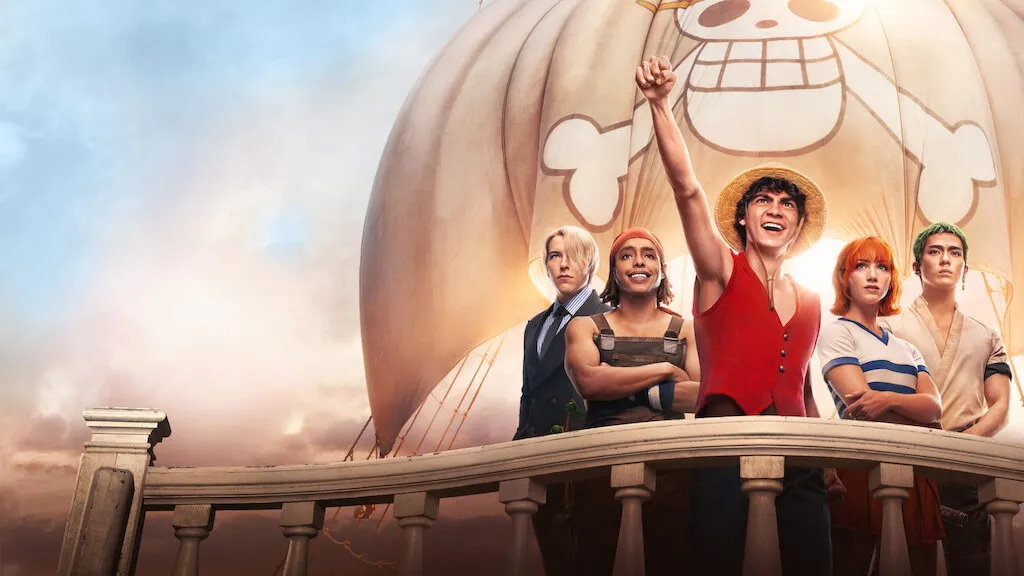This summer, Netflix premiered a live-action series adapted from the renowned manga and anime One Piece. The series follows the captivating adventures of Monkey D. Luffy, a young and charismatic aspiring pirate, widely recognized for his iconic straw hat.
Without giving away too many spoilers for those who may not be familiar with the story, it revolves around Luffy’s quest to locate a legendary treasure, the One Piece, which would also grant him the title of Pirate King in a fictional world teeming with, well… pirates.
Luffy is a character who gives high importance to values such as friendship, loyalty and the bonds he forms with his diverse crew, known as the Straw Hat Pirates. As they sail the seas, they face enemies and uncover mysteries along the way all in pursuit of their dreams and ultimately to find the elusive treasure.
It comes as no surprise that Luffy emerges as a leader both likable and reliable, captivating his crew and the series’ viewers alike. However, what specific traits and behaviors underlie his effective (and unconventional) leadership? Here is a glimpse of those qualities:

Effective Goal Communication (clearly & often)
In each episode, Luffy reaffirms his goal with the resounding phrase “I’m going to find the One Piece and will become the Pirate King”. This clear and consistent declaration serves as a beacon, providing direction toward the ultimate destination, even if the precise path remains unclear.
Empowerment and Trust
Luffy empowers his crew members to make decisions and take on leadership roles within the group. Recognizing each member’s unique expertise, he fosters an environment where individual strengths are valued and respected, allowing for optimal decision-making in specialized domains, be it thievery, navigation, or sword combat.
Leading by Example
Despite the diversity of his crew’s backgrounds, Luffy successfully instills core values of trust, respect, and camaraderie by exemplifying these principles through his actions. His commitment to these values highlights the relevance, not only for the team’s cohesion but also for achieving their collective goal.
Commitment to Growth
Luffy recognizes the intrinsic motivation of individuals and its impact on the group’s well-being. He actively invests in helping his crew members pursue their individual dreams, even if this entails embarking on alternate quests or facing additional adversaries or even part ways. His belief in the transformative power of personal growth underscores his dedication to the collective success of the crew.
Empathy and Active Listening
Luffy’s practice of actively listening to the concerns, ideas, and feedback of others allows him to exhibit empathy and compassion, even toward adversaries. This empathy serves as a valuable tool for evaluating diverse situations and challenges, offering insight into effective problem-solving and conflict resolution.
Adaptability
Luffy’s ultimate goal is matched by his adaptable approach. Rather than a fixed path, his journey consists of incremental steps that bring him closer to his ultimate objective while accommodating unforeseen setbacks or novel circumstances. Upon completing each side quest, he assesses his progress and sets new milestones.
Celebrating Successes
Fostering a cohesive and supportive team transcends goal setting and achievement. Celebrating successes, whether marking the end of a significant battle or other accomplishments, strengthens personal bonds among team members and enhances overall team morale.
Luffy’s awareness of the significance of celebrating successes is evident in his propensity to commemorate any achievement with grand feasts and parties for the entire crew.

In summary, leadership comes in various forms, and sometimes, the most unexpected individuals can teach us valuable lessons about what it means to lead effectively. Monkey D. Luffy may not fit the traditional mold of a leader, but his leadership style embodies effective servant leadership.
His selflessness, adaptability, and fearlessness in the face of adversity serve as a compelling example of how leadership can thrive outside conventional boundaries. Luffy’s journey to become the Pirate King may be a fictional adventure, but the leadership lessons he imparts are very much real and we can draw inspiration from his unique style to navigate the challenges of our dynamic world.


